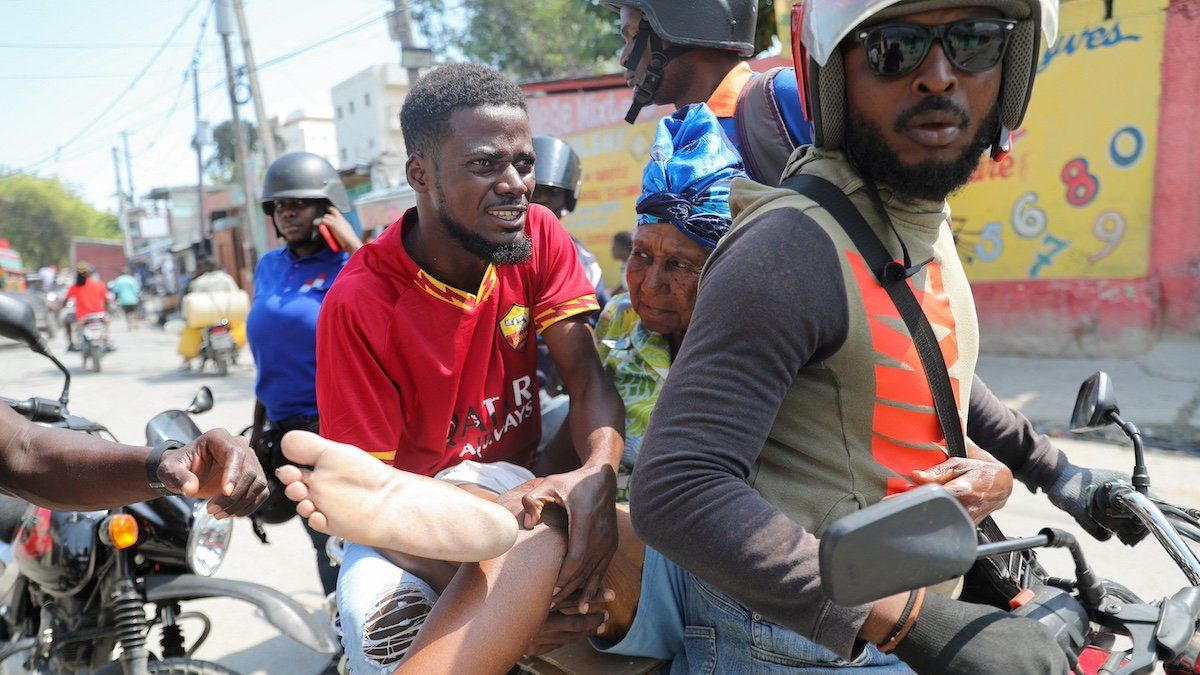Regional leaders are meeting Monday in Jamaica to discuss Haiti’s political crisis after intense violence in Port-au-Prince saw gangs burn down the country’s Interior Ministry this weekend. They also attacked police stations near the National Palace in offensives that have paralyzed the country. The US Embassy has evacuated non-essential staff.
Washington is pushing for a transitional council to replace unpopular Prime Minister Ariel Henry, who is stuck outside Haiti. He left for Nairobi on Feb. 25 to try to salvage a multinational intervention force to be led by Kenya. The leader of the largest gang coalition, Jimmy Chérizier (aka Barbecue), used Henry’s absence as an opportunity to play for power.
What happens now? Guyanese President Irfaan Ali, the president of regional bloc CARICOM, says he is in talks with Henry and other Haitian power players.
We expect Henry to step down – without support from Haitians, the US, or regional leaders, how can he hang on?
The tricky question is who comes next.
Guy Philippe, a convicted drug trafficker who led the 2004 coup, is
building support for his “National Awakening” movement, and some Haitians say he is in a position to negotiate with the gangs. But considering he’s fresh out of a US prison, don’t expect Washington to back him.
